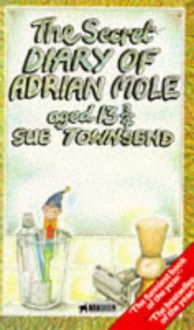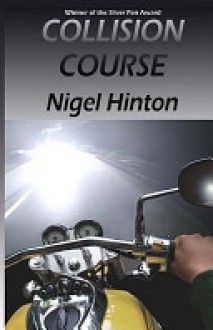
I discovered this book because I had watched the TV series that was based on it and the reason that I watched the TV series was because when I was flicking through a computer magazine (when I was a kid) I found an add for 'The Secret Diary of Adrian Mole, aged 13 ½'. I guess that is how advertising is supposed to work because the only reason I read the book was because I had watched the TV series, and the only reason I watched the TV series was because somebody had written an adventure game based on it and I like adventure games (though I didn't actually buy the book – I borrowed from the library). Come to think of it I went through the same process with regards to The Hitch-Hikers Guide to the Galaxy (and I watched the show to see if I could get any hints for the game – I didn't). Though for some reason I think that the reason the computer game was written was so that Sue Townsend could cash in on the popularity of her books rather than sell more books (and since I borrowed the book from the library, I didn't actually buy it, so in the end she didn't sell more books, or at least sell another one to me).
The story is written in the form of diary entries (which is not actually all that original since Bram Stoker did something along those lines about a hundred years before, though his diary entries were by multiple people and also included newspaper clippings) as a young teenager travels the road of high school (not sure what it is called in England, but here in Australia it is high school). During this year he gets his first girlfriend, struggles with his O levels (whatever that is, though I suspect it is some form of standardised testing, though we didn't have them in Australia), and I believe he watches his parents get divorced.
I guess this is one of those books where we get to see inside the head of a teenager and are meant to realise that he goes through the same struggles as we all do. He deals with puberty, but also shows himself to be a bit of a geek by reading Peer Gynt (nothing wrong with that, I quite liked Peer Gynt). In fact, he sets himself a goal to read Peer Gynt.
I wonder if this book is actually a more modern version of Peer Gynt. I don't think so because Adrian Mole does not go through the turmoil that Peer Gynt goes through, and we are only privy to Mole's teenage years, not his whole life, as is the case with Peer Gynt. I also do not believe that Mole earns the entire enmity of the town in which he lives by getting drunk at a wedding, running off with the bride, and then dumping her on some high mountain. However, one thing that we can consider is that Adrian Mole does seem to live in a dream world similar to Peer Gynt.
Could this book be a handbook on surviving puberty? Maybe, maybe not. It is clearly targeted towards those of Adrian's age, though I suspect much has changed in society since the days in which this book was popular. However, despite all of the changes in our society (especially the interconnectedness we now have with mobile phones and the Internet) there are still many things that are the same. However, I am unsure whether this is supposed to be a guidebook because everybody's experience of puberty is different. Still, it was a fun book to read, and in a way I did relate to Adrian Mole, and it did not matter that he was in England and I was in Australia, high school culture, somehow, seemed to be much the same.

 Log in with Facebook
Log in with Facebook 






